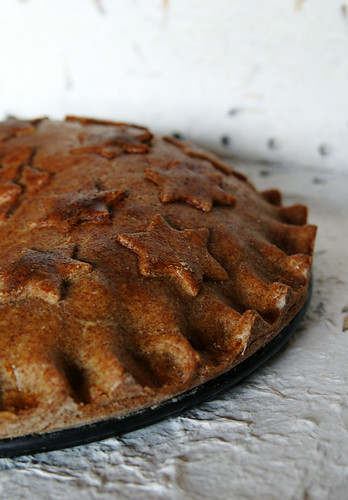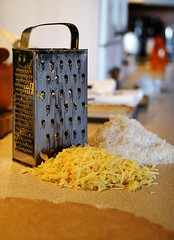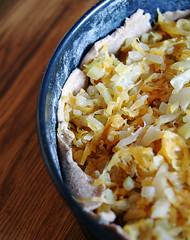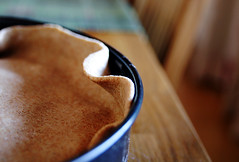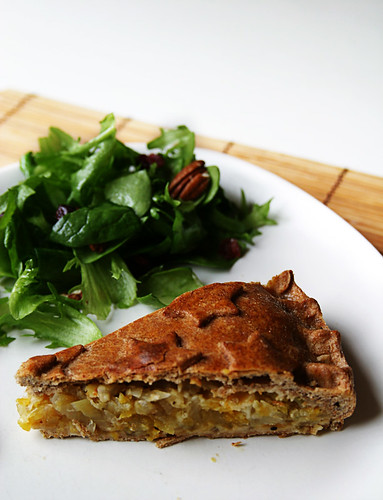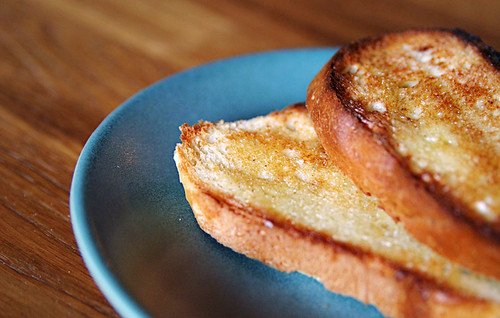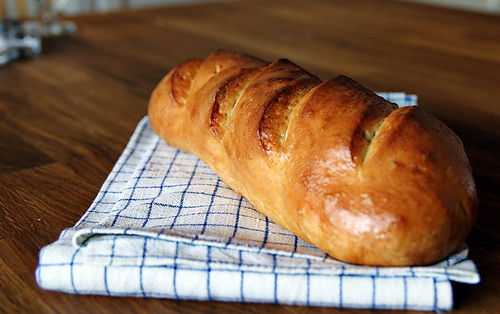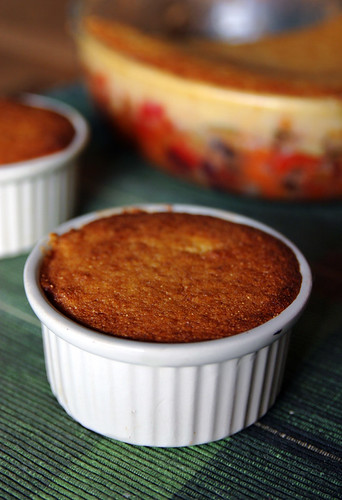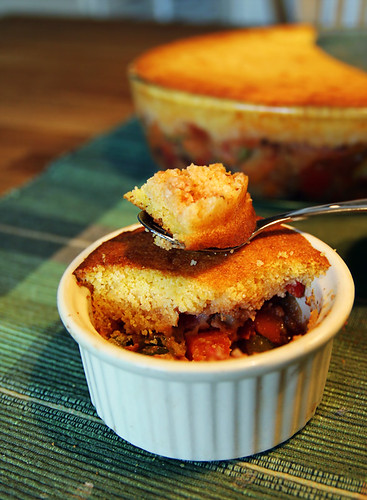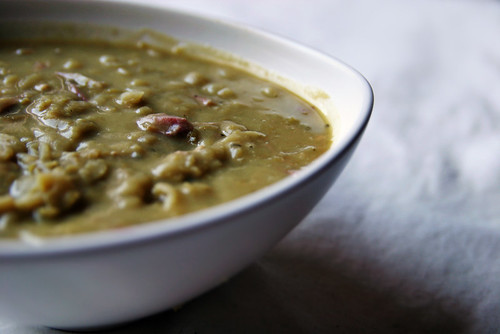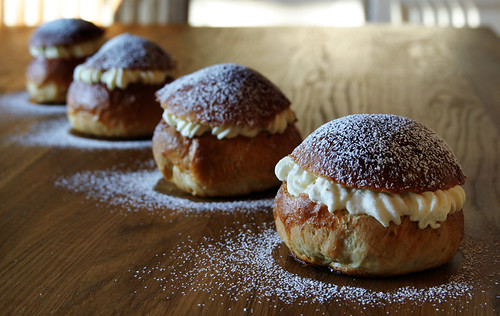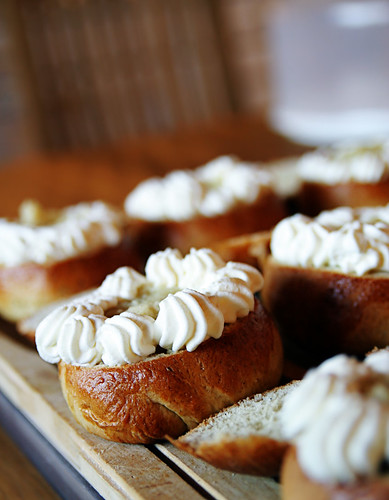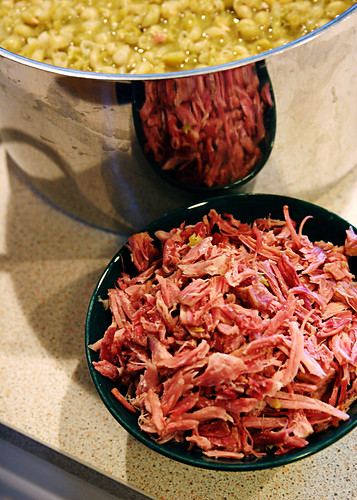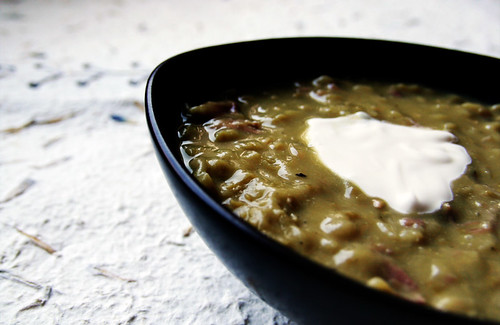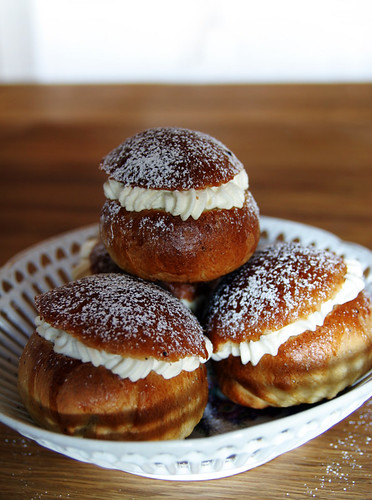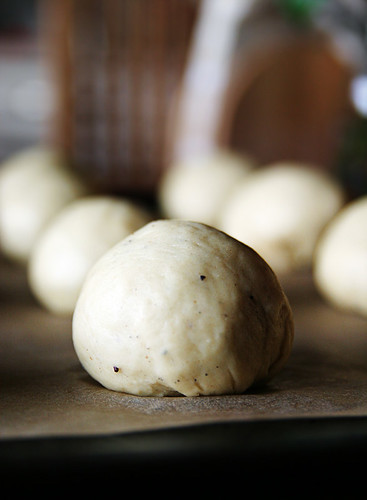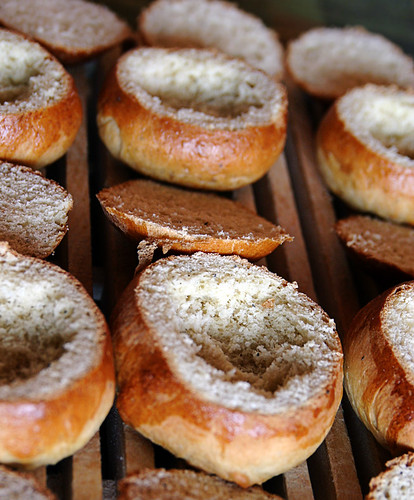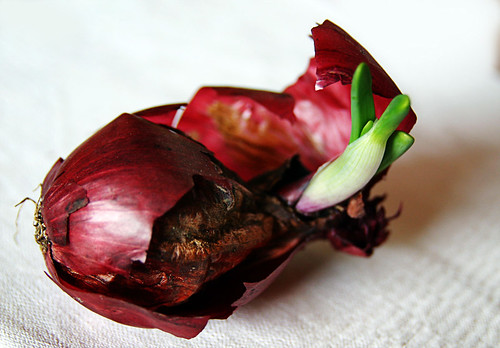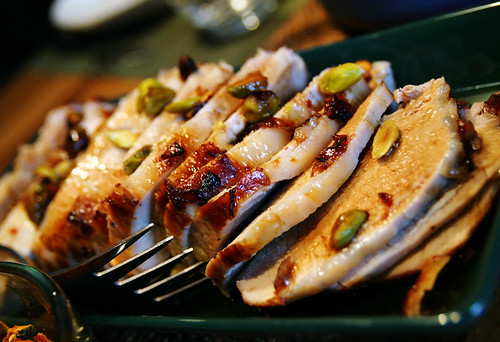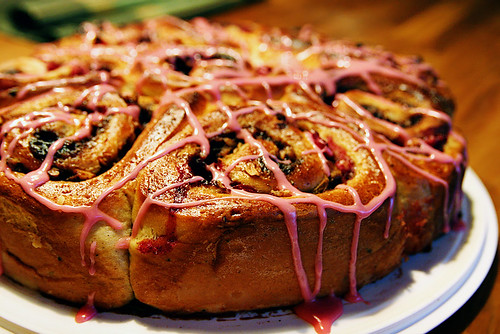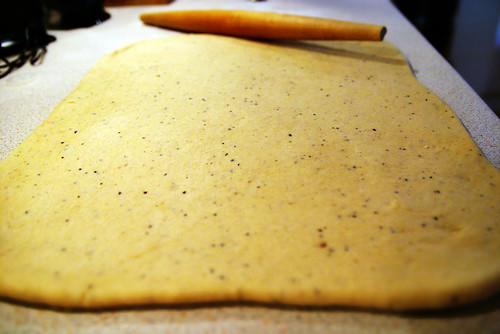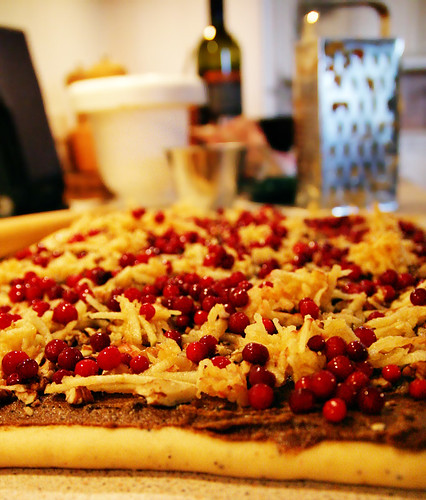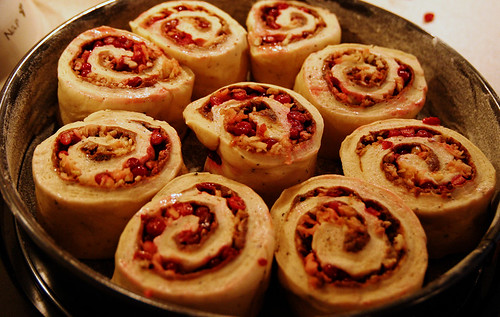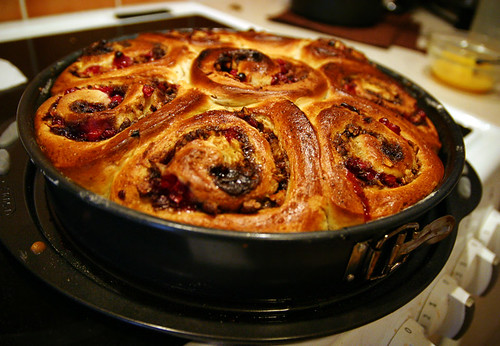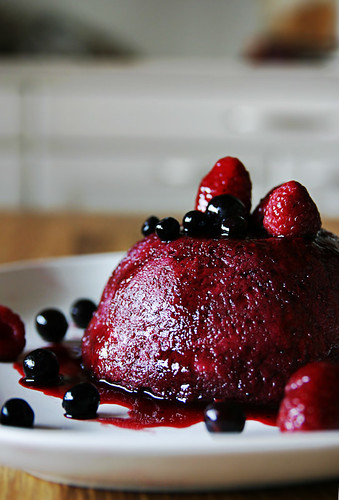
Until this weekend. This isn't my grandmother's recipe, just something I cobbled together, adding my favorite spices (ever since making the spicy swirl cake that kicked off this blog I've been living some kind of cardamom renaissance - it really is a fabulous spice to use in desserts) and using up the leftover French Bread from Friday and an I'm-afraid-to-think-how-old splosh of white wine from the fridge, thus making this my entry for this month's Leftover Tuesday, hosted by Rachel. (ETA: check out the roundup here.)
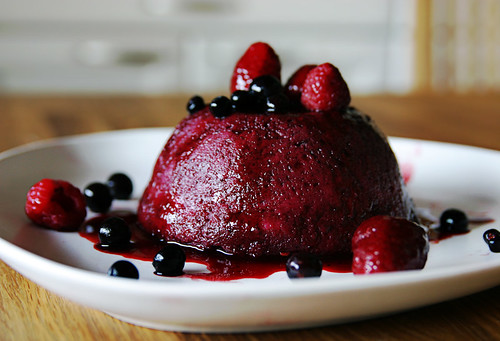
I think you can probably use any kind of fruit in this, frozen or fresh. I went for raspberries, bilberries and blackcurrants, frozen ones naturally since we are about as far from summer as you can get, and added a splosh of white wine for extra depth. The berries are simmered in sugar and spices (cardamom and cinnamon in this case) and poured into a bowl lined with bread and topped with another layer of bread and then weighted down in the fridge overnight so the bread soaks up all the juices and turns a wonderful purple color. A perfect easy/healthy dessert to finish a heavy meal or a weeknight dinner. Yum.
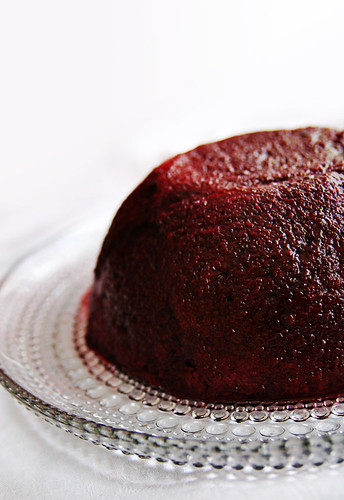
Summer Pudding with Cardamom & White Wine
1 large loaf of dense (white) bread, sliced and with crusts cut off
1 kg (2 pounds) berries, I used about 600 g raspberries and 200 g each bilberries and blackcurrants
3 whole cardamom pods + ½ tsp crushed cardamom seeds
1 stick cinnamon
100 ml sugar (depending on how tart your berries are and how much of a sweet tooth you have)
splosh of white wine
grated peel of ½ a lemon
Heat the cardamoms, cinnamon, sugar and wine in a large pan until sugar is dissolved. Turn off the heat and let stand for a while to let the spices flavor the syrup. Add the berries and lemon peel to the pan. (If you want to make things easy for yourself, fish out the cardamom pods at least before adding the berries. I didn't and had had to hunt for them later.) It will seem like A LOT of berries, but don't worry.
Turn on the heat again and simmer until the berries start letting out their juices. Meanwhile, line a medium-sized bowl (or several small ones, or ramekins, or whatever) first with a large piece of clingfilm (you'll need to cover the bowl completely with the edges later) and then with bread slices, overlapping and pressing them together so there are no cracks in between. If you're making this in portion-sized cups, make sure to slice your bread very thinly or the berries-to-bread ratio will go all wonky.
Spoon the berry mixture on the bread, reserving some of the juices (if you've used frozen berries like me, chances are you'll have a lot of liquid, but that's OK). Top the bowl with more bread, again making sure there are no cracks, and spoon on some of the reserved juices (not all of them, though).
Fold the edges of the clingfilm over the bread and weigh down with a plate topped with something heavy (such as, say, more plates). Leave in the fridge overnight.
To serve, unfold the clingfilm, invert bowl over a plate and remove both bowl and clingfilm. Moisten any white patches of bread with the last of the juices and serve along with whipped cream or vanilla ice cream. (Although frankly, when I had it the following day without either it was even better.)

 Pumpkin in a pie? How novel! But wait, this isn't a sweet pie with pumpkin puree (which is fairly impossible to find here anyway), but a savory one with parmesan, onions and cheddar. And the pumpkin is coarsely grated and steamed. In fact, my pumpkin was grated, steamed and frozen several months ago (you seasonal produce people can just bite me), making today's cooking operation a breeze.
Pumpkin in a pie? How novel! But wait, this isn't a sweet pie with pumpkin puree (which is fairly impossible to find here anyway), but a savory one with parmesan, onions and cheddar. And the pumpkin is coarsely grated and steamed. In fact, my pumpkin was grated, steamed and frozen several months ago (you seasonal produce people can just bite me), making today's cooking operation a breeze.